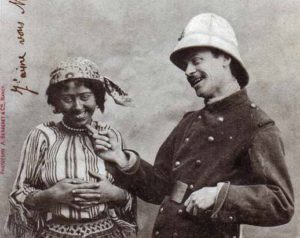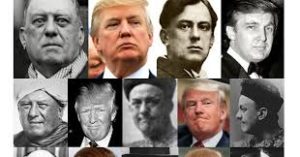
After the reign of Graham Capill, Peter Dunne vied with Colin Craig and Nick Smith for the title of “New Zealand Politician Considered Most Likely To Get Sent Down For Kiddy Fiddling”, as Dunne is also a highly narcissistic, sexually repressed, out-of-touch Bible thumper – the prime demographic. But in the cold light of day, not even a dozen Beasts of Blenheim could have done as much damage to Aotearoa New Zealand as Peter Dunne.
This article limits itself to calculating the amount of financial damage Peter Dunne did to New Zealand through his one-man campaign to prevent even the possibility of reform to our expensive, vicious and counterproductive cannabis laws.
After the 2002 General Election, called in the wake of the collapse of the Alliance Party, Labour Leader Helen Clark had three possible options to help her stitch together a Government: New Zealand First, who wanted no immigration; the Greens, who wanted no genetic engineering; and United Future, who wanted no reform on social issues.
In the end it was apparent that big business strongly supported both mass immigration and genetic engineering, so cannabis users and gays and lesbians wishing to marry got thrown under the bus for the $$$$$. Helen Clark signed on the Wormrider’s bottom line for the support of his 8 MPs and the rest is history.
After the 2005 General Election things were slightly different. United Future had less influence on account of voters not being so easily tricked by a television gimmick this time around, so Labour was in a position to try and unfuck the country.
Dunne was able to get a cabinet position, cementing his reputation as “Hemhorroid of the House” by resisting all progress.
He continued to oppose progress on social issues by voting against the Civil Unions Bill, a half-arsed attempt at a gay marriage bill sold as an ingenious compromise with New Zealand’s legion of elderly Christian bigots, and, of course, by not allowing so much as a discussion about cannabis.
After 2008 the conservative National Government took power, and naturally they did not repeal cannabis prohibition as it directly serves major capitalist interests to have a competitor to the alcohol, tobacco and pharmaceutical industries crushed.
Dunne managed to worm his way into the position of Associate Minister of Health, from where he was able to garrote all attempts at cannabis law reform in their infancy, most notably by skillful and successful actions in dividing the cannabis law reform movement.
The two most notable examples of this were declaring the grossly unsuitable fraudster Toni-Marie Matich to be the public face of cannabis law reform, thus damaging the credibility of the movement, and the Orwellian Psychoactive Substances Act, which made everything illegal and divided the movement into people who had read it and people who hadn’t.
So, aside from the couple of million that Dunne has leeched from the public funds in the form of an MP’s salary and perks, how much has he cost the country?
There is no simple calculation because it depends on the extent of the cannabis law reform that was prevented in the last window of opportunity presented by the Fifth Labour Government.
We know that full, Colorado-style reform would save New Zealand $500,000,000 per year in Police costs, court costs, prison costs, and lost tax revenue. Multiplying this by the 14 years since 2002, when Dunne first had his influence in preventing reform, gives us a figure of $7,000,000,000.
In reality, the Clark Administration would have likely brought in some kind of medicinal cannabis and/or decriminalisation in 2003/4, with full legalisation coming later, so the immediate savings might have been a third to a half of their final value, increasing as time went on.
This suggests a figure for the total wastage of Kiwi labour and resources due to Peter Dunne’s actions of between $3 and $7 billion.
This thought experiment ought to be a sobering one for anyone worried about Maori beneficiaries having too many kids and Chinese restaurants not paying taxes. If one politician can cost the country $3,000,000,000 because of moral and intellectual incompetence, all of our scrutiny ought to be directed at the ruling classes, and not on each other.



